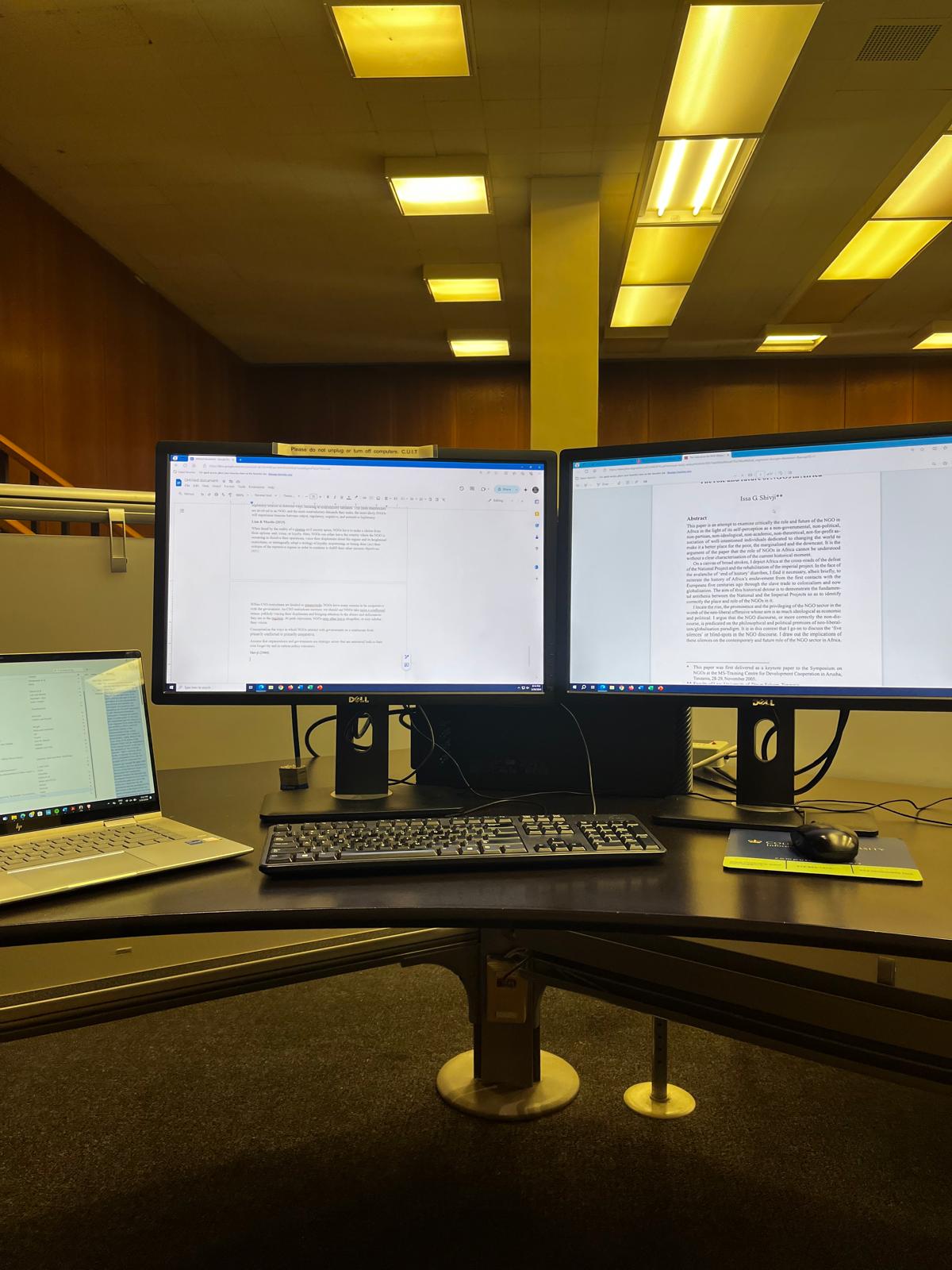
This picture is an encapsulation of what much of the past weeks have been for me. On most days, my attention was split between three screens -- one listening the 10-20 papers and I had to read for the day, one with the paper I was currently reading, and one with my annotations and reading notes as my work went on. I chose this picture because I think the greatest realization I've had over the past few weeks is that humanities research can seem very, very lonely. Humanities researchers don't have the privilege of working in a lab teeming with PIs and research assistants, and for a huge portion of their time, have neither the means nor the knowledge necessary to go out into the field. Rather, humanities research often relies on a small group of individuals working in relative independence to push the boundaries of their fields and expand their knowledge.
Because of this, humanities research is consistently critiqued for being unreliable and impossible to replicate; A lab of 20-30 people is far less likely to be collectively wrong than one person is. However, humanities researchers are working in labs of their own - When we read and interact with the literature of other scholars in the field, or meet with supervisors to map out potential ideas for theories and conceptual frameworks, we are not alone. Rather, we are standing on the shoulders of those who have come before us. Uniquely, we do so with a commitment to critiquing their approaches and filling them in - Rather than taken for granted the works of previous theorists as proven and universally true, we are constantly involved in critiquing, complicating, and reconstructing their perspectives to envision a better field, and a better world. For much of my 6 weeks, I was alone in a quiet corner of the Lehman Social Sciences Library. But I was not alone, and as I continue with my research journey, I realize I never will be.
My research focused on the double bind experienced by non-governmental organizations and philanthropic organizations operating in regions experiencing repression of civil society, and committed to causes that may be viewed as taboo. I conducted a literature review on the evolution of civil society in Southern Africa, the development of the LGBTQ rights movement in the region, and the role of participatory methods of philanthropic action in the region. All of this served as a prelude to a qualitative investigation of how participatory philanthropy has manifested in research organizations that I'm hoping to engage in for the remainder of the summer, and into the Fall semester.

Please sign in
If you are a registered user on Laidlaw Scholars Network, please sign in